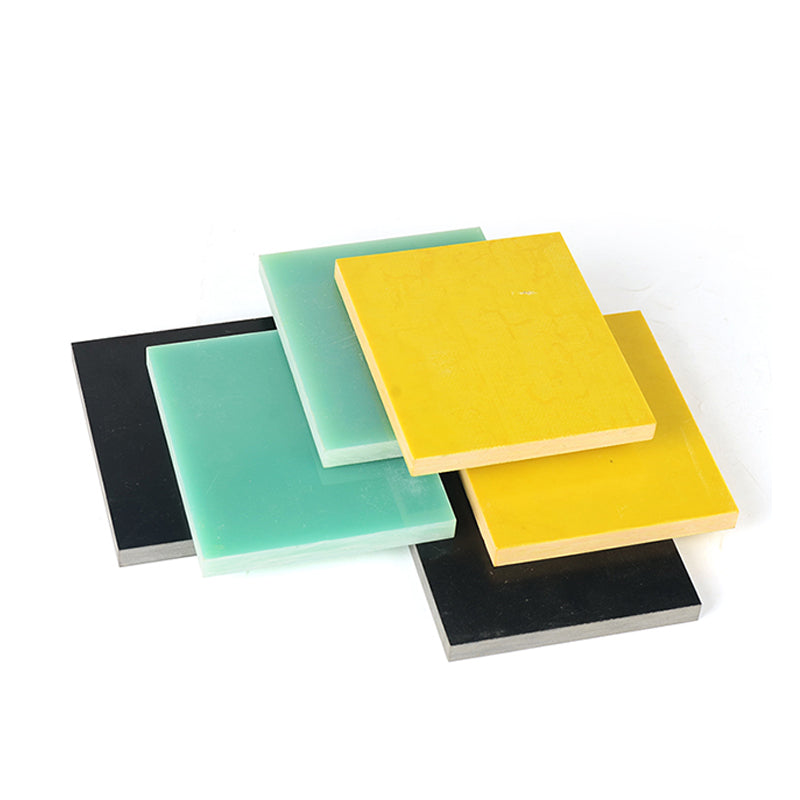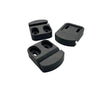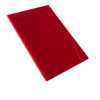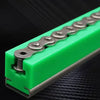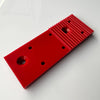Revolutionize Your Industry: The Ultimate Guide to PPS CNC Machining for Machine Building
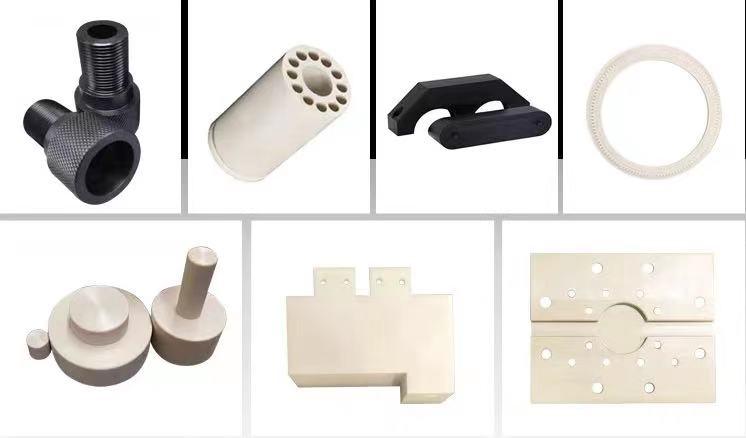
Dive into the world of industrial innovation with "Revolutionize Your Industry: The Ultimate Guide to PPS CNC Machining for Machine Building." This comprehensive blog post is your go-to resource for understanding the transformative power of Polyphenylene Sulfide (PPS) in the realm of CNC machining.
🎉🎉🎉Limited Time Offer Use code: QR4GNY08SHVR at checkout and enjoy a special discount on your entire order! 👉PPS board
We begin by exploring the unique properties of PPS material, highlighting its exceptional heat resistance, chemical stability, and mechanical strength. These features make PPS an unparalleled choice for industrial applications, especially in machine building.
Next, we delve into the advantages of PPS CNC machining in industrial manufacturing. Discover how this technology offers unmatched precision and durability, significantly enhancing the efficiency and quality of your industrial machinery.

Our journey continues with real-world innovative applications of PPS in machine building. Here, you'll see practical examples of how PPS CNC machining is being used to create complex, high-quality parts and components, showcasing its versatility and utility in various industrial settings.
For those interested in the technical side, we provide a detailed step-by-step guide to the PPS CNC machining process. This section covers everything from design considerations and machining techniques to finishing processes and quality control, tailored specifically for PPS.
Finally, we look ahead to the future trends and developments in PPS CNC machining. Stay informed about the latest technological advancements, potential new applications, and strategies to keep your business at the forefront of industrial innovation.
Whether you're a seasoned professional or new to the field, "Revolutionize Your Industry: The Ultimate Guide to PPS CNC Machining for Machine Building" is an essential read for anyone looking to enhance their industrial operations with cutting-edge technology. Join us in exploring the future of industrial manufacturing!
Understanding PPS Material in CNC Machining
When it comes to industrial applications, particularly in machine building, the choice of material plays a pivotal role in the success and efficiency of the end product. One such material that stands out in the realm of CNC machining is Polyphenylene Sulfide (PPS). This section delves deep into the properties of PPS, underscoring why it's an increasingly popular choice in various industrial sectors.
Key Properties of Polyphenylene Sulfide (PPS)
Heat Resistance
One of the most notable properties of PPS is its exceptional heat resistance. PPS can withstand high temperatures without losing its structural integrity, making it an ideal material for components that are exposed to extreme heat during operation. This characteristic is particularly beneficial in industries such as aerospace, automotive, and electronics, where materials are often subjected to high thermal stress.
Chemical Stability
Chemical stability is another hallmark of PPS. This material exhibits remarkable resistance to a wide range of chemicals, including acids, alkalis, and organic solvents. This resistance makes PPS an excellent choice for parts that need to maintain their strength and functionality in corrosive environments. It's particularly advantageous in chemical processing equipment, where exposure to aggressive substances is common.
Mechanical Strength
The mechanical strength of PPS is a key factor in its suitability for CNC machining and industrial applications. PPS boasts a high strength-to-weight ratio, making it both lightweight and robust. This strength is crucial for creating parts that are not only durable but also efficient in terms of energy consumption and material usage. The material's rigidity and dimensional stability further enhance its applicability in precision engineering, where tight tolerances and consistent performance are essential.

Why PPS is Ideal for CNC Machining
The combination of heat resistance, chemical stability, and mechanical strength makes PPS an excellent material for CNC machining. Its properties allow for the creation of complex and precise components that can withstand harsh industrial conditions. Additionally, PPS's machinability means that it can be easily shaped and customized to meet specific design requirements, making it a versatile choice for a wide range of industrial applications.
In conclusion, Polyphenylene Sulfide (PPS) stands out as a material of choice for CNC machining in industrial settings. Its unique combination of heat resistance, chemical stability, and mechanical strength makes it an invaluable asset in machine building and other high-demand applications. As industries continue to evolve and face new challenges, materials like PPS will play a crucial role in driving innovation and efficiency.

By understanding the properties and benefits of PPS, industries can make informed decisions about their material choices, leading to improved product performance and longevity. The future of industrial manufacturing is bright, with materials like PPS paving the way for advanced, reliable, and efficient solutions.
Advantages of PPS CNC Machining in Industrial Manufacturing
The integration of Polyphenylene Sulfide (PPS) in CNC machining has revolutionized industrial manufacturing. PPS's unique properties not only enhance the quality of the final products but also bring a multitude of benefits to the manufacturing process itself. This section highlights the specific advantages of using PPS in CNC machining, particularly focusing on precision, durability, and efficiency, and how it stands out compared to other materials.

Precision and Accuracy with PPS
Unmatched Precision in Machining
One of the foremost benefits of using PPS in CNC machining is the exceptional precision it offers. The inherent stability and rigidity of PPS allow for tight tolerances and intricate detailing, which is crucial in industries where precision is paramount. This level of accuracy ensures that each component meets stringent specifications, reducing the need for post-machining adjustments.
Consistency Across Productions
PPS's dimensional stability under varying conditions ensures consistent quality in mass production. Unlike some materials that may warp or deform due to temperature changes or mechanical stress, PPS maintains its shape and size, ensuring uniformity in every batch of products.
Enhanced Durability and Longevity
Superior Strength and Wear Resistance
Durability is another significant advantage of PPS in industrial manufacturing. The material's high mechanical strength and wear resistance mean that components made from PPS can withstand rigorous use and harsh industrial environments. This durability translates to longer-lasting parts, reducing the frequency of replacements and maintenance.
Resistance to Harsh Conditions
PPS's ability to resist high temperatures and corrosive chemicals further extends the life of CNC machined parts. This resistance makes it an ideal choice for applications in challenging environments, such as in chemical processing or high-temperature industrial settings.

Efficiency Improvements in Machine Building
Material Efficiency and Waste Reduction
The machinability of PPS contributes to material efficiency and waste reduction. Its ease of machining means less material is wasted during the manufacturing process, contributing to cost savings and environmental sustainability.
Energy Efficiency in Production
The lightweight nature of PPS, coupled with its strength, means that components can be designed to be more energy-efficient. Lighter parts can lead to reduced energy consumption in machinery and equipment, contributing to overall operational efficiency.
Comparing PPS to Other Materials
When compared to other materials commonly used in CNC machining, such as metals or other plastics, PPS stands out for its unique combination of properties. While metals may offer similar strength, they often fall short in terms of chemical resistance and can be heavier, leading to increased energy consumption. Other plastics might not provide the same level of heat resistance or mechanical strength as PPS, limiting their application in more demanding industrial environments.
In conclusion, the use of PPS in CNC machining offers a range of benefits for industrial manufacturing. Its precision, durability, and efficiency improvements make it a superior choice for machine building and other industrial applications. As industries continue to seek materials that can meet the demands of modern manufacturing, PPS is poised to play an increasingly important role in the future of industrial production.
The adoption of PPS in CNC machining is a testament to the ongoing evolution in industrial manufacturing, where materials are not just selected for their basic properties but for the comprehensive advantages they bring to the entire production process.

Innovative Applications of PPS in Machine Building
The world of industrial manufacturing is constantly evolving, with new materials and technologies emerging to meet the ever-growing demands of various sectors. Polyphenylene Sulfide (PPS), in particular, has emerged as a game-changer in the field of CNC machining, offering a range of applications that demonstrate its versatility and utility. This section explores the diverse and innovative applications of PPS in machine building, highlighting its impact across different industries.
PPS in Aerospace and Aviation
High-Performance Components for Aircraft
In the aerospace industry, the use of PPS is significant due to its high-temperature tolerance and lightweight nature. Components such as valve parts, connectors, and brackets are often machined from PPS. These parts benefit from PPS's ability to withstand extreme temperatures and pressures, which are common in aerospace environments, without compromising on weight – a critical factor in aircraft design.

Automotive Industry Applications
Durable Parts for High-Stress Environments
The automotive sector also reaps the benefits of PPS CNC machining. Here, PPS is used to create durable, heat-resistant components like pump parts, under-hood connectors, and insulators. These parts must endure high temperatures and exposure to various chemicals and fluids, making PPS's chemical stability and heat resistance ideal properties.
Medical Equipment Manufacturing
Precision and Sterility in Medical Devices
In medical equipment manufacturing, the precision and chemical inertness of PPS are crucial. Surgical instruments, sterilization tray components, and device housings made from PPS can withstand repeated sterilization processes without degrading, ensuring both durability and hygienic integrity.
Electronics and Electrical Components
Heat-Resistant Insulators and Connectors
The electronics industry benefits from PPS's excellent electrical insulation properties and heat resistance. Components such as electrical insulators, connectors, and coil forms are often made from PPS. These parts need to maintain their integrity and performance in environments where they are exposed to high electrical loads and varying temperatures.
Custom Machinery and Equipment
Tailored Solutions for Specialized Industries
PPS CNC machining shines in the production of custom machinery and equipment for specialized industrial applications. Whether it's for food processing, chemical plants, or other manufacturing sectors, PPS can be machined into complex, custom-designed parts that meet specific industry requirements.
Comparing PPS with Traditional Materials
When compared to traditional materials like metals or other plastics, PPS offers a unique combination of properties that make it more suitable for certain applications. Its ability to maintain strength and stability under high temperatures and in chemically aggressive environments gives it an edge over many conventional materials.
In conclusion, the innovative applications of PPS in machine building across various industries underscore its versatility and utility. From aerospace to automotive, medical to electronics, and beyond, PPS CNC machining is enabling advancements and efficiencies that were once challenging to achieve. As industries continue to evolve, the role of materials like PPS in driving innovation and meeting specific industrial needs becomes increasingly significant.
The exploration of PPS's applications in machine building not only highlights its current uses but also opens the door to future possibilities. As technology advances, the potential for new and even more innovative uses of PPS in industrial manufacturing is vast, promising a future where efficiency, precision, and durability are at the forefront of production.

Step-by-Step Guide to the PPS CNC Machining Process
The CNC machining process for Polyphenylene Sulfide (PPS) is a meticulous and precise operation, tailored to harness the unique properties of this high-performance material. This guide provides a detailed walkthrough of the steps involved in CNC machining PPS, from initial design considerations to the final quality control measures. Understanding this process is crucial for anyone looking to leverage PPS's advantages in industrial applications.
Initial Design and Planning
Understanding Material Properties
Before the actual machining process begins, it's essential to have a thorough understanding of PPS's properties. This includes its heat resistance, chemical stability, and mechanical strength. Such knowledge informs the design process, ensuring that the parts are optimized for both the material and the intended application.
CAD Modeling and Simulation
The design phase typically involves Computer-Aided Design (CAD) modeling. Here, engineers create detailed 3D models of the parts to be machined. These models are crucial for simulating how the parts will behave under different conditions and for identifying any potential issues before machining begins.

Machining Techniques for PPS
Selecting the Right Tools and Parameters
When it comes to the actual machining of PPS, selecting the right cutting tools and machining parameters is critical. Tools must be chosen based on their ability to handle PPS's hardness and abrasiveness. Similarly, machining parameters like speed, feed rate, and depth of cut need to be optimized to prevent material deformation and ensure precision.
CNC Machining Operations
The CNC machining of PPS can involve various operations such as milling, turning, drilling, and more. Each operation must be carefully executed to maintain the integrity of the PPS, ensuring that the final product meets the required specifications.
Finishing Processes for PPS Components
Post-Machining Treatments
After the primary machining, PPS components often undergo finishing processes. These can include deburring, polishing, and surface treatments. These steps are vital for achieving the desired surface finish and for enhancing the part's physical properties, such as its wear resistance or chemical compatibility.
Quality Control and Inspection
Rigorous Testing and Inspection
Quality control is a critical aspect of the PPS CNC machining process. Each part is subjected to rigorous testing and inspection to ensure it meets all specified tolerances and quality standards. This may involve dimensional checks, material property tests, and performance evaluations under simulated working conditions.
Ensuring Consistency and Reliability
The final step in the process is ensuring that each machined part is consistent with the others and reliable in its intended application. This consistency is crucial for industries where precision and reliability are non-negotiable, such as in aerospace or medical device manufacturing.
In conclusion, the CNC machining process for PPS is a complex but highly rewarding endeavor. By following these steps and paying close attention to detail at each stage, manufacturers can produce high-quality, precision components that fully leverage the unique properties of PPS. This process not only highlights the technical capabilities of modern machining but also underscores the importance of material selection in achieving optimal performance in industrial applications.
The step-by-step guide to PPS CNC machining is more than just a technical procedure; it's a testament to the advancements in manufacturing technology and material science. As industries continue to push the boundaries of what's possible, materials like PPS and processes like CNC machining will be at the forefront, driving innovation and excellence in industrial manufacturing.

Future Trends and Developments in PPS CNC Machining for Industry
The landscape of industrial manufacturing is continuously evolving, with new materials and technologies shaping the future of production. Polyphenylene Sulfide (PPS), in the context of CNC machining, is at the forefront of this evolution. This section explores the future possibilities and emerging trends in the use of PPS for CNC machining, highlighting how technological advancements and innovative applications are set to redefine industry standards.
Technological Advancements in PPS Machining
Integration of Advanced CNC Technologies
One of the most significant trends in PPS CNC machining is the integration of advanced CNC technologies. This includes the use of AI-driven machining processes, automation, and robotics. These technologies not only enhance precision and efficiency but also open up new possibilities for complex designs that were previously challenging to achieve.
Material Science Innovations
Advancements in material science are leading to the development of new grades of PPS with enhanced properties. These innovations could result in PPS variants with even higher temperature resistance, greater mechanical strength, or improved chemical stability, further expanding its application scope.
Emerging Applications of PPS in Industry
Expanding into New Industrial Sectors
PPS is poised to expand its presence into new industrial sectors. Fields like renewable energy, space exploration, and advanced electronics are potential new frontiers for PPS CNC machined parts. In these sectors, the material's unique properties can address specific challenges, such as the need for lightweight yet durable components in space applications.
Customization and Complex Designs
The future of PPS CNC machining also lies in its ability to cater to increasingly customized and complex designs. As industries move towards more tailored solutions, the versatility of PPS in CNC machining will be crucial in meeting these bespoke requirements.

Staying Ahead of the Curve
Embracing Innovation and Continuous Learning
For companies to stay ahead of the curve, embracing innovation and continuous learning is essential. This involves not only investing in the latest machining technologies but also staying abreast of developments in material science and industry trends.
Collaborative Efforts and Research
Collaborative efforts between industry, academia, and research institutions will play a vital role in advancing the applications of PPS in CNC machining. Such collaborations can lead to breakthroughs in material processing techniques and the discovery of new applications for PPS.
In conclusion, the future of PPS CNC machining is bright and filled with potential. As technological advancements continue to unfold, the versatility and utility of PPS in industrial applications are set to reach new heights. Companies that invest in these emerging trends and technologies will be well-positioned to lead in the ever-evolving landscape of industrial manufacturing.
The exploration of future trends and developments in PPS CNC machining is not just about predicting the next big thing; it's about understanding the trajectory of industrial innovation. By staying informed and adaptable, manufacturers and engineers can harness the full potential of PPS, driving forward a future where efficiency, precision, and sustainability are at the heart of industrial production.
As we reach the conclusion of our exploration into the dynamic world of PPS CNC Machining for Industrial Applications, it's clear that this field is not just about the material or the technology itself, but about the broader implications for the future of manufacturing. Polyphenylene Sulfide (PPS), with its remarkable properties and versatility, stands as a testament to the incredible advancements in material science and machining technology.
The journey through the various aspects of PPS CNC machining—from understanding its fundamental properties, examining its advantages in industrial manufacturing, witnessing its innovative applications, delving into the detailed machining process, and looking ahead to future trends—has revealed a landscape rich with potential and innovation.
As industries continue to evolve and face new challenges, the role of materials like PPS and processes like CNC machining will be crucial in driving efficiency, precision, and sustainability. The ability to adapt to these changes, to embrace new technologies and materials, will define the success of companies and industries in the coming years.
In closing, the story of PPS in CNC machining is more than just a narrative about a material; it's a glimpse into the future of industrial manufacturing. A future where the boundaries of what's possible are constantly being pushed by advancements in technology and material science. For engineers, designers, and manufacturers, staying informed and adaptable in this rapidly changing environment is not just an option, but a necessity to remain competitive and innovative.
As we look forward, let's embrace the possibilities that materials like PPS bring to the table. Let's continue to innovate, to experiment, and to push the limits of what we can achieve. The future of industrial manufacturing is bright, and with materials like PPS at our disposal, the potential for groundbreaking advancements and applications is limitless.

Top 10 Frequently Asked Questions About PPS CNC Machining in Industrial Applications
-
What is PPS in CNC Machining?
- Answer: PPS (Polyphenylene Sulfide) in CNC machining refers to the use of a high-performance thermoplastic known for its excellent chemical resistance, heat tolerance, and mechanical strength in computer-controlled machining processes.
-
Why is PPS preferred in industrial manufacturing?
- Answer: PPS is preferred due to its high heat resistance, chemical stability, and mechanical strength, making it ideal for producing durable and precise components for harsh industrial environments.
-
Can PPS be used in high-temperature applications?
- Answer: Yes, PPS is well-suited for high-temperature applications due to its ability to maintain structural integrity and performance at elevated temperatures.
-
How does PPS compare to other plastics in CNC machining?
- Answer: PPS often outperforms other plastics in CNC machining due to its superior heat resistance, chemical stability, and mechanical properties, making it more suitable for demanding industrial applications.
-
What industries commonly use PPS CNC machined parts?
- Answer: Industries such as aerospace, automotive, electronics, medical equipment manufacturing, and chemical processing commonly use PPS CNC machined parts.
-
Is PPS CNC machining cost-effective?
- Answer: While PPS material can be more expensive than some alternatives, its durability and longevity often make it a cost-effective choice in the long run, especially for applications requiring high performance under stress.
-
What are some challenges in machining PPS?
- Answer: Challenges include managing the material's hardness and abrasiveness, which can wear down cutting tools, and ensuring precise control of machining parameters to maintain the integrity of the PPS.
-
Can PPS be recycled or reused in manufacturing?
- Answer: PPS can be recycled, but the process requires specific conditions to maintain its properties. Reusing or recycling PPS in manufacturing depends on the purity and condition of the recycled material.
-
How does PPS perform in corrosive environments?
- Answer: PPS performs exceptionally well in corrosive environments due to its high chemical resistance, making it ideal for parts exposed to acids, alkalis, and organic solvents.
-
What future developments are expected in PPS CNC machining?
- Answer: Future developments may include the creation of new PPS blends with enhanced properties, further integration of advanced CNC technologies like AI and automation, and expanding applications in emerging industries like renewable energy and space exploration.

Unlock the Potential of PPS CNC Machining
Ready to revolutionize your industrial manufacturing processes? Discover the unparalleled benefits of PPS CNC Machining. Click here to learn more and take the first step towards transforming your production capabilities!
🎉🎉🎉Limited Time Offer Use code: QR4GNY08SHVR at checkout and enjoy a special discount on your entire order! 👉PPS board
-
Posted in
beeplastic, cnc machining, industry, manufacturing, plastic machining, pps

